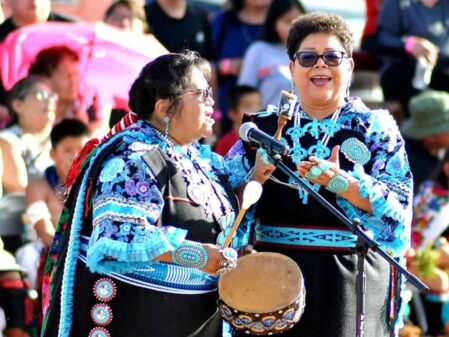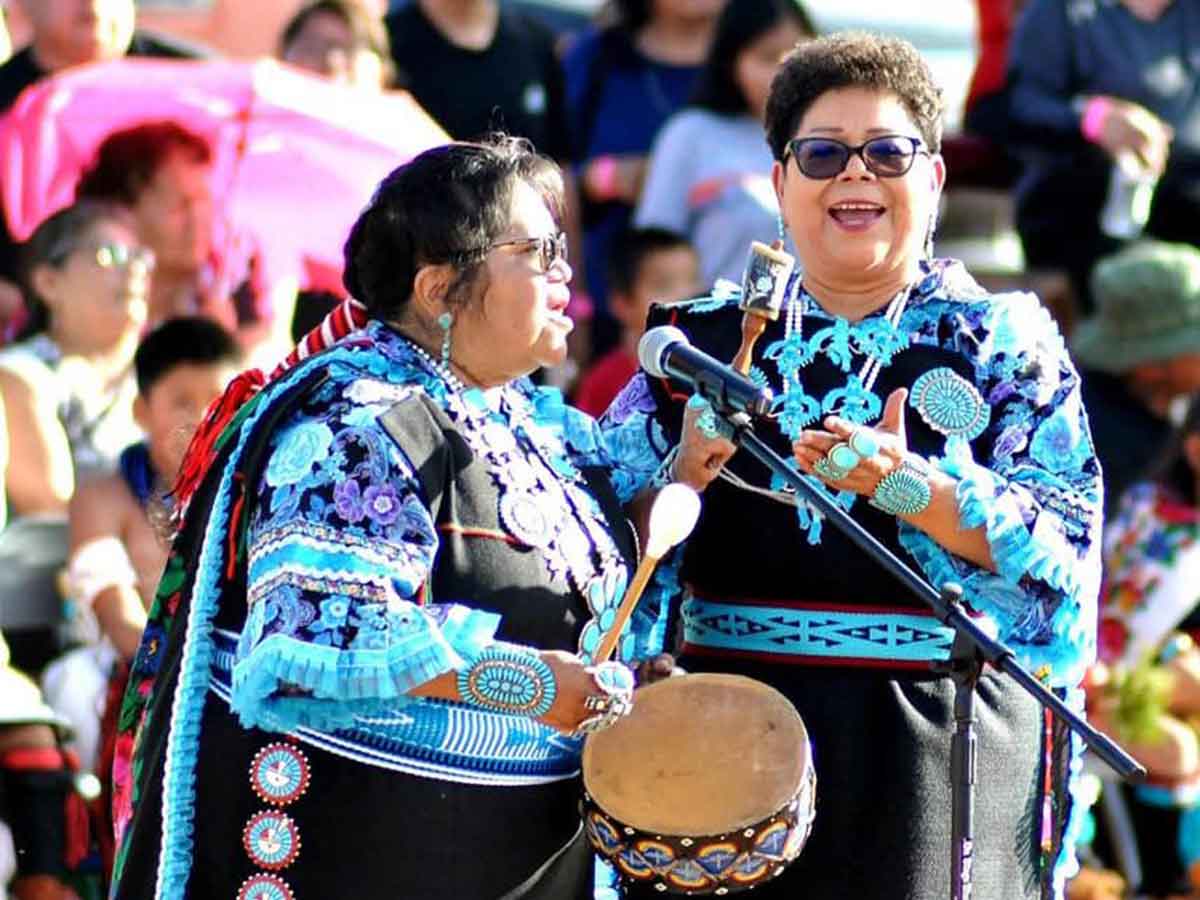Traditional Zuni Dance and Song | Zuni, New Mexico
The Zuni Olla Maidens are a venerated dance troupe from Zuni Pueblo in western New Mexico, equally well-known for singing, drumming and their trademark dance balancing pottery on their heads, as well as being an all-female troupe. The Zuni Olla Maidens are also unique in that their group has always consisted of related women, making it a family affair for more than 70 years.
The significance of the family connection gives the Zuni Olla Maidens reliance and longevity. The individual members are stewards, knowing they owe much to the women that came before, as well as being responsible for those who will come after they are gone.
The balanced pottery style of dancing originated in the 1920s by a Hopi woman named Daisy Nampeyo, who married into Zuni. It was designed as a social dance, performed by women, to showcase both Zuni pottery as well as the clothing and jewelry made in the Pueblo.
In the 1950s, the style was adopted by Crystal Sheka. The group was led for decades by Sheka’s daughter, Cornelia Bowannie. When Bowannie retired from the group in 2015, her daughters, Juanita Edaakie and Loretta Beyuka, became leaders. Edaakie says when they retire, they’ll pass on the leadership to one of their nieces.
Being both a family group and exclusively female is essential to the Zuni Olla Maidens. Edaakie explains: “We pay homage to our ancestral women who centuries ago used to get water from nearby rivers and lakes and carry them in these great big jars called ollas. Olla is the Spanish word for pot. And we know it wasn’t an easy job.”
The Zuni Olla Maidens have been recognized with invited performances at the National Museum of the American Indian, (Washington, DC), Richmond Folk Festival (Richmond, Virginia), Zuni Festival of Arts & Culture, (Flagstaff, Arizona), and Gallup Inter-Tribal Indian Ceremonial (Gallup, New Mexico) among others. A recreation of the Olla Maidens regalia, made by Edaakie, is part of the Museum of Indian Arts and Cultures’ permanent exhibit in Santa Fe, New Mexico.
The group received the distinguished Allan Houser Award from the Santa Fe Indian Market for “preserving and reshaping the face of native arts.” They were also recognized with a New Mexico Historic Women Marker, a roadside marker east of Zuni Pueblo that briefly outlines the group’s history and honors their artistic excellence.


